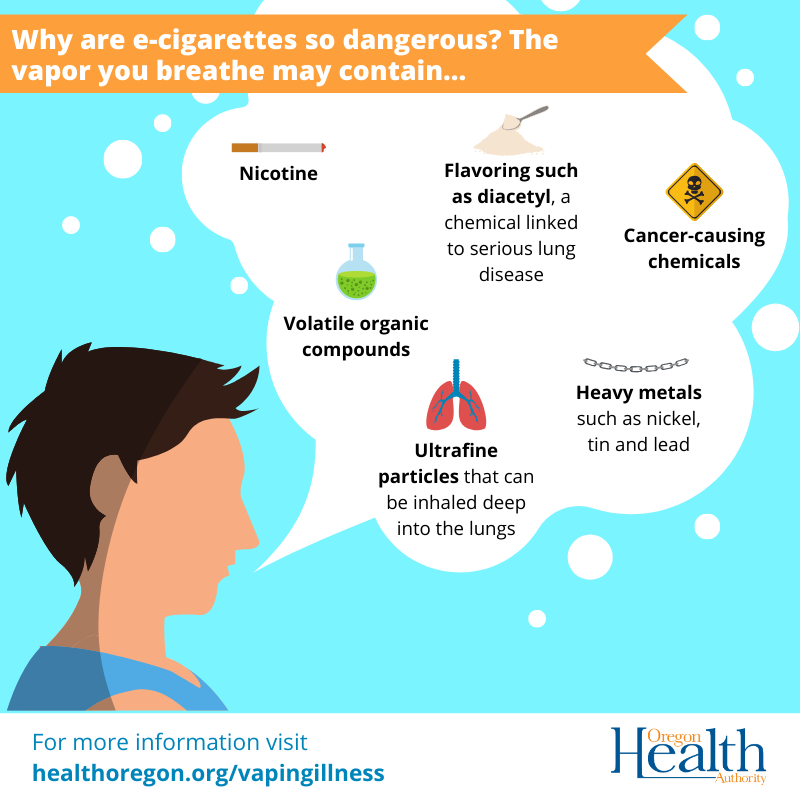Electronic cigarettes, or e-cigarettes, pose several health dangers:
Nicotine Addiction and Health Effects
- Addiction: E-cigarettes contain nicotine, which is highly addictive. This can lead to dependence and continued use, even when users want to quit.
- Brain Development: Nicotine can harm adolescent brain development, affecting learning, memory, and attention.
- Cardiovascular Issues: Nicotine raises blood pressure and heart rate, increasing the risk of heart disease and stroke.
Harmful Chemicals
- Toxic Substances: E-cigarette aerosols contain harmful chemicals, including heavy metals (like lead), volatile organic compounds (VOCs), and cancer-causing substances.
- Lung Damage: Inhaling these chemicals can cause irreversible lung damage, such as bronchiolitis obliterans (“popcorn lung”).
- Respiratory Issues: E-cigarettes can irritate the lungs and airways, leading to coughing, wheezing, and shortness of breath. They can also worsen asthma and other respiratory conditions.
Other Risks
- Explosions and Burns: Defective e-cigarette batteries can explode, causing serious burns and injuries.
- Accidental Poisoning: E-liquids can be poisonous if swallowed or absorbed through the skin, especially for children.
- Gateway Effect: E-cigarette use may lead to the use of other tobacco products, including traditional cigarettes.
It’s important to note that the long-term health effects of e-cigarettes are still being studied, and more research is needed to fully understand the risks.









